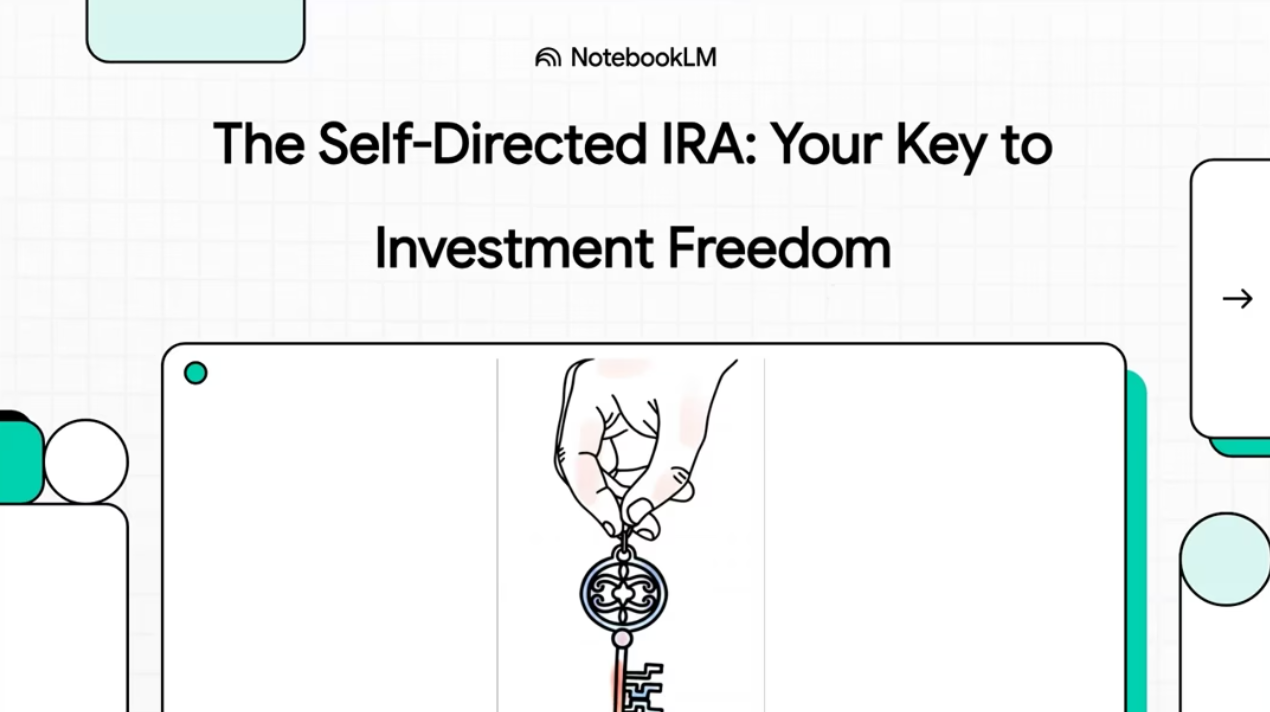Should I Invest my IRA in a Startup?

Investing in startups can be a way to create explosive capital growth for your self-directed IRA. If you can get in on the ground floor of a new business that makes it to the next level, the potential financial rewards can be tremendous.
When a company goes public or is acquired by another firm, the payoff for original investors is often significant. We speak with a good number of investors with the potential to participate in such deals.
Let’s look at some of the key considerations affecting startup investing in a self-directed IRA or Solo 401(k).
Startup Opportunities
You’ve certainly seen all the buzz about companies going public and big gains for investors on IPO day. The reality is, as an individual investor, you’re not invited to that party.
Large institutional investors dominate access to IPO’s. Where you can get involved in the exciting prospects of a company with a new idea is as a startup or early stage investor.
These opportunities are out there, and normally presented to friends and family and their associated sphere of influence. Networking in an entrepreneurial environment is usually how you can find out about these types of opportunities.
Whether a company is starting from scratch or has achieved proof of concept and is looking to scale up, the need for capital is there. Private investors are the fuel for innovation.
Avoiding Disqualified Persons
It’s important to keep in mind that your IRA can’t invest in certain businesses where you or close family have control. The IRS rules surrounding the tax-sheltered status of an IRA or 401(k) prohibit any direct or indirect benefit between a plan and a disqualified person.
The list of folks your IRA can’t interact with include:
- You
- Your spouse if married
- Lineal antecedents such as parents, grandparents, etc.
- Lineal descendants such as children, grandchildren, etc.
- The spouse of a descendant
- An entity such as a business or trust where one or more of the above have control via greater than 49% ownership or a directorial role
- A joint venture or business partner in a business that you or a disqualified person control
What this means is that your IRA can’t invest in your daughter’s new startup. It also means that your IRA shouldn’t invest in a company if that investment will grant you the opportunity to become an employee of that company – or in effect, buying you a job.
Is Accreditation Required
Depending on the nature of the business, the opportunity to invest may only be available to accredited investors. In very small private placements, the possibility of friends and family to invest without the transaction being viewed as a security exists.
In any larger opportunity — or where involvement of investors beyond the company owner’s immediate circle exists — securities regulations may apply.
Depending on how the company has setup their offering, it may be limited to accredited investors only. Some types of arrangements allow for up to 35 non-accredited but “sophisticated” investors capable of understanding business and risk.
Be sure you understand and meet the requirements to invest before spending too much time analyzing an opportunity.
Avoid Subchapter S Corporations
Subchapter S corporations are limited to shareholders who are individuals and US citizens. Your IRA may not be a shareholder, and therefore can’t invest in any venture that is established as a S corporation.
Potential Tax Implications
An IRA or 401(k) is exempted from taxation on income that is passive in nature such as dividends, interest, and rents from real property.
If a startup is formed as a subchapter C corporation, then it will be issuing dividends to investors after paying corporate taxes. This type of income will be fully sheltered to an IRA, just like an investment into a large publicly traded company like Amazon or General Motors.
If the business is some other form of entity like a sole proprietorship, LLC or LLP, then it will be passing through income to investors without first paying taxes at the corporate level.
When a tax-exempt such as an IRA or 401(k) receives this type of trade or business income it can be subject to taxation on Unrelated Business Taxable Income (UBTI). Tax rates on UBTI top out at 37%. The concept behind this form of taxation is to protect tax-paying businesses from unfair competition.
When UBTI is Problematic
UBTI applies to operating income, not to the gain in equity an investor may receive if a business is sold or goes public.
In most true startup or venture capital type plays, this exposure to UBTI is certainly something to be aware of, but not likely to spoil the opportunity. Most startups operate in the red initially, allowing for losses that can be used to offset future UBTI obligations.
While there may be a period of time where positive operating income exists, the overall tax impact should be relatively modest.
When the company is sold, there is no tax on the gain in value. And if that gain is good, it will more than outweigh the small cost of UBTI taxation on the way there.
On the other hand, investing in a company for the long term with the operating income that company will produce being the primary incentive may not work out so well.
Diligence Considerations
We’ve covered the initial structural considerations that you’ll need to consider when investing in a startup with IRA funds.
These are a good starting point to determine if it even makes sense to look more closely at an opportunity.
If you choose to invest, be sure to perform thorough diligence on the company. This may involve reviewing financials and obtaining background checks on company principals.
You may also want to do your own research to corroborate any assumptions the company is making in pro-forma projections. Consider the following questions:
- Is the sector the business is looking to serve real?
- Who are competitors in the same field?
- Are there regulatory hurdles that need to be overcome, and does the leadership team have the necessary expertise to navigate these processes?
- What happens if the goals are not met?
Do You Need Checkbook Control?
If your only goal is one or two private placement investments totaling under $100K in value, a Checkbook IRA is going to be more tool than necessary.
The benefit of checkbook control is time efficiency and reduction of per-transaction and per-asset fees assessed by self-directed IRA custodians. These benefits will come into play pretty quickly with a moderate amount of activity in an account.
For one or two static assets, however, there may not be any real advantage.
Checkbook control plans will benefit investors who are either broadly investing in a number of startups, or for whom startup investing is just one aspect of a larger portfolio of alternative assets.
The Crowdfunding Option
It’s possible to participate in venture capital investing without a direct network to entrepreneurs. Subsequent to the 2012 JOBS Act, securities rules were relaxed so as to allow companies to attract a broader range of investors.
Crowdfunding platforms have become a popular way to make startup and angel investing opportunities more publicly available. Many of the same principals outlined above will still apply when investing on a crowdfunding platform.
Swinging for the Fences
The opportunity to “hit a home run” with a startup is certainly appealing. You also need to be cognizant of the fact that many startups fail or stall out and end up as a “strikeout”.
This type of investing leads to some pretty high risk-reward ratios, and isn’t for everyone.
Be sure that any amount you invest in a startup is money you can live without. If you have the opportunity to spread money around into multiple deals, that can provide some level of diversification.
If there are 3 strikeouts and one home run, you still end up ahead of the game.
What our clients says about us
Quick answers to common questions
We’ll take you through a simple, step by step process designed to put your investment future into your own hands…immediately. Everything is handled on a turn-key basis. You take 100% control of your Retirement funds legally and without a taxable distribution.
YES! In 1974, Congress passed the Employee Retirement Income Security Act (ERISA) making IRA, 401(k) and other retirement plans possible. Only two types of investments are excluded under ERISA and IRS Codes: Life Insurance Contracts and Collectibles (art, jewelry, etc.). Everything else is fair game. IRS CodeSec. 401 IRC 408(a) (3)
It’s actually pretty simple. Early on, regulators let the securities industry take the lead in educating the public about retirement accounts. Naturally, brokers and banks promoted stocks, bonds, and mutual funds—giving the impression that those were the only allowed investments. That was never true... and still isn’t. You can probably guess why they kept the rest under wraps.
It is possible to use funds from most types of retirement accounts:
- Traditional IRA
- Roth IRA
- SEP IRA
- SIMPLE IRA
- Keogh
- 401(k)
- 403(b)
- Profit Sharing Plans
- Qualified Annuities
- Money Purchase Plans
- and many more.
It must be noted that most employer sponsored plans such as a 401(k) will not allow you to roll youraccount into a new Self-Directed IRA plan while you are still employed. However, some employers will allow you to roll a portion of your funds. The only way to be completely sure whether your funds are eligible for a rollover is by contacting your current 401(k) provider.
A Solo 401(k) requires a sponsoring employer in the format of an owner-only business. If you have a for-profit business activity – whether as your main income or as a side venture – and have no full-time employees other than potentially your spouse, your business may qualify. The business may be a sole-proprietorship, LLC, corporation or other entity type.
A self-directed retirement plan is a type of IRA or 401(k) that gives you greater control over how your retirement funds are invested. Unlike traditional accounts held at banks or brokerage firms that limit you to stocks, bonds, and mutual funds, self-directed plans allow you to invest in a wide range of alternative assets including real estate, private businesses, precious metals, cryptocurrency, and more.
These plans still follow the same IRS rules and maintain the same tax-deferred or tax-free benefits as conventional retirement accounts. The difference is simply in how and where you choose to invest.
No. Moving to a self-directed IRA or Solo 401(k) does not trigger any taxes, as long as your funds are eligible for rollover.
Self-directed retirement plans maintain the same tax-advantaged status as traditional plans offered by banks or brokerage firms. The key difference is flexibility—our plans are designed to give you greater control and allow for a wider range of alternative investments beyond stocks, bonds, and mutual funds.
A prohibited transaction is any action between your retirement plan and a disqualified person that violates IRS rules and can lead to serious tax consequences. Under IRS Code 4975(c)(1), prohibited transactions include:
- Selling or leasing property between your plan and a disqualified person Example: Your IRA cannot purchase a property you already own.
- Lending money or extending credit between the plan and a disqualified person Example: You cannot personally guarantee a loan your IRA uses to buy real estate.
- Providing goods or services between your plan and a disqualified person Example: You can’t use your personal furniture to furnish a rental property owned by your IRA.
- Using plan income or assets for the benefit of a disqualified person Example: Your IRA cannot buy a vacation home that you or your family use.
- Self-dealing by a fiduciary (using plan assets for their own benefit) Example: Your CPA shouldn't loan your IRA money if they’re advising the plan.
- Receiving personal benefit from a deal involving your IRA's assets Example: You can’t pay yourself from profits your IRA earns on a rental.
If a transaction doesn’t clearly fall within the allowed guidelines, the IRS or Department of Labor may review the situation to determine if it qualifies as a prohibited transaction.
Disqualified persons are individuals or entities that are prohibited from engaging in certain transactions with your IRA or 401(k). Doing so could trigger a prohibited transaction, which may result in taxes and penalties.
Here’s who is considered a disqualified person:
- You (the account holder)
- Your spouse
- Your parents, grandparents, and other ancestors
- Your children, grandchildren, and their spouses
- Any advisor or fiduciary to the plan
- Any business or entity owned 50% or more by you or another disqualified person, or where you have decision-making authority
These rules exist to prevent self-dealing and ensure your retirement plan remains in compliance with IRS regulations.
(Reference: IRC 4975)
Understanding and following these rules can be tricky, but it’s very doable. The best way to stay compliant is to work with professionals who specialize in self-directed retirement plans. They can help you navigate IRS guidelines and avoid prohibited transactions.
If an IRA holder is found to have engaged in a prohibited transaction with IRA funds, it will result in a distribution of the IRA. The taxes and penalties are severe and are applicable to all of the IRA’s assets on the first day of the year in which the prohibited transaction occurred.
Yes. While self-directed retirement plans allow for a wide range of investments, there are a few important restrictions.
You cannot invest in collectibles or life insurance contracts, and you must avoid prohibited transactions—activities that benefit you personally rather than the retirement plan. These include things like buying or selling property to yourself or family members, using plan assets for personal gain, or self-dealing in any way.
Violating these rules could cause your entire IRA to lose its tax-advantaged status. To protect your account, it’s essential to work with professionals who understand IRS regulations and can help you stay compliant.
This is a common misconception. In many cases, professionals may simply be unfamiliar with self-directed retirement plans, as they fall outside their usual scope of work. CPAs and tax preparers are trained to file taxes, not necessarily to advise on alternative retirement strategies. Financial advisors and brokers often work for firms that focus on traditional investments like stocks and mutual funds—and may not benefit from or support alternative options like real estate or private lending.
Self-directed retirement investing is legal under IRS rules—but like any specialized area, it requires working with professionals who understand how it works.
The IRS has rules in place to make sure your IRA is used only for the exclusive benefit of the retirement account—not for personal gain or to help family members. These rules can get complicated because there are many ways a conflict of interest can occur, even unintentionally.
For example, if your IRA buys a house and rents it to your mother, you might be reluctant to evict her if she stops paying rent. That emotional connection creates a conflict between what’s best for your IRA and your personal relationships, something the IRS aims to prevent.
These rules help ensure your retirement account stays compliant and protected. (See IRC 408)
Yes. Most tax-deferred retirement accounts—such as Traditional IRAs, old 401(k)s, 403(b)s, and TSPs—can be rolled over into a self-directed IRA or Solo 401(k), depending on your eligibility. Roth IRAs cannot be rolled into these accounts.
You can contribute directly from earned income, subject to annual IRS contribution limits. The method and amount depend on the type of plan you have (e.g., Solo 401(k) vs. IRA).
To take a distribution, you'll request funds through your custodian or plan administrator. Distributions may be taxable depending on your account type and age. Early withdrawals may be subject to penalties.
For 2025, the Solo 401(k) max contribution limit is $81,250 if age 60-63, $77,500 if age 50-59 or 69+, and $70,000 if under 50. Traditional and Roth IRAs have a limit of $7,000 ($8,000 if age 50+). Limits are subject to IRS adjustments.
Yes. IRA contributions are typically due by your personal tax filing deadline (e.g., April 15). Solo 401(k) contributions follow your business tax filing deadline, including extensions.
IRS reporting requirements vary depending on the type of self-directed retirement plan you have. Here’s a quick breakdown of what you need to know
Please note: Our team can help you understand what’s required for your specific account, but we don’t provide tax or legal advice. We always recommend working with a qualified tax professional to ensure full IRS compliance.
Self-Directed IRA (Traditional or Roth)
- Form 5498 – Filed by your custodian each year to report contributions, rollovers, and the fair market value (FMV) of your account.
- Form 1099-R – Issued if you take a distribution or move funds out of your IRA.
- Annual Valuation – You'll need to provide updated FMV for any alternative assets held in the account, such as real estate or private placements.
Solo 401(k)
- Form 5500-EZ – Required if your plan assets exceed $250,000 as of year-end. Must be filed annually by the plan participant.
- Form 1099-R – Required if you take a distribution or roll funds out of the plan.
- Contribution Tracking – Keep records of employee and employer contributions. These are not filed with the IRS but may be needed for tax reporting or audits.
SEP IRA
- Form 5498 – Filed by your custodian to report contributions and FMV.
- Form 1099-R – Filed by your custodian. Issued for any distributions.
- Employer Contributions – Must be reported on your business tax return (and on employee W-2s, if applicable).
Health Savings Account (HSA)
- Form 5498-SA – Filed by your HSA custodian to report contributions.
- Form 1099-SA – Filed by your HAS custodian. Issued for any distributions.
- Form 8889 – Must be included with your personal tax return to report contributions, distributions, and how funds were used.







